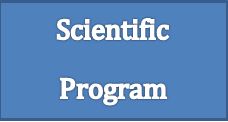
Jacinthe Lemay
Kuwait University, Kuwait
Title: Adverse drug reaction reporting in primary care in Kuwait: A comparative study between physicians and pharmacists
Biography
Biography: Jacinthe Lemay
Abstract
Adverse Drug Reactions (ADRs) are a significant cause of morbidity and mortality. However, little is known about ADR reporting practices among Healthcare Professionals (HCPs) in Kuwait, especially in the primary healthcare setting. The objective of this study is to investigate and compare knowledge, attitude and practices regarding Pharmacovigilance (PV) and ADR reporting among physicians and pharmacists in primary care. A descriptive, cross sectional study was carried out. A validated self-administered questionnaire was distributed to a total of 583 physicians and pharmacists in 38 primary care clinics in Kuwait. Statistical analysis was done using the Statistical Package for Social Science version 23. Categorical variables were described using numbers and percentages. The Pearson chi-square or Fisher’s exact tests were used wherever appropriate. Out of 583 distributed questionnaires, 485 were completed giving a response rate of 83.2%. The study sample consisted of 318 physicians and 167 pharmacists. A total of 52.8% and 70.5% of study participants were knowledgeable about PV and ADR definitions, respectively, with pharmacists demonstrating significantly better knowledge (p<0.001). However, the majority (89.4%) was not aware of an ADR reporting system in Kuwait. Almost every participant (97.7%) thought it is necessary to report ADRs. However, significantly fewer physicians compared to pharmacists believed that ADR reporting is a professional obligation (78.0% vs. 88.0%; p=0.007). Only 27.8% had reported them, with pharmacists having reported significantly less compared to physicians (21.7% vs. 30.8%; p=0.036). The major barrier to reporting ADRs, cited by significantly more physicians was not knowing how to report (75.2% vs. 64.7%; p=0.015). Despite the positive attitudes, results indicate suboptimal knowledge and poor practices among primary care HCPs with regards to PV and ADR reporting. Targeted and practical training on ADR reporting while ensuring a robust regulatory framework may encourage a better ADR reporting culture in the primary healthcare setting in Kuwait.

